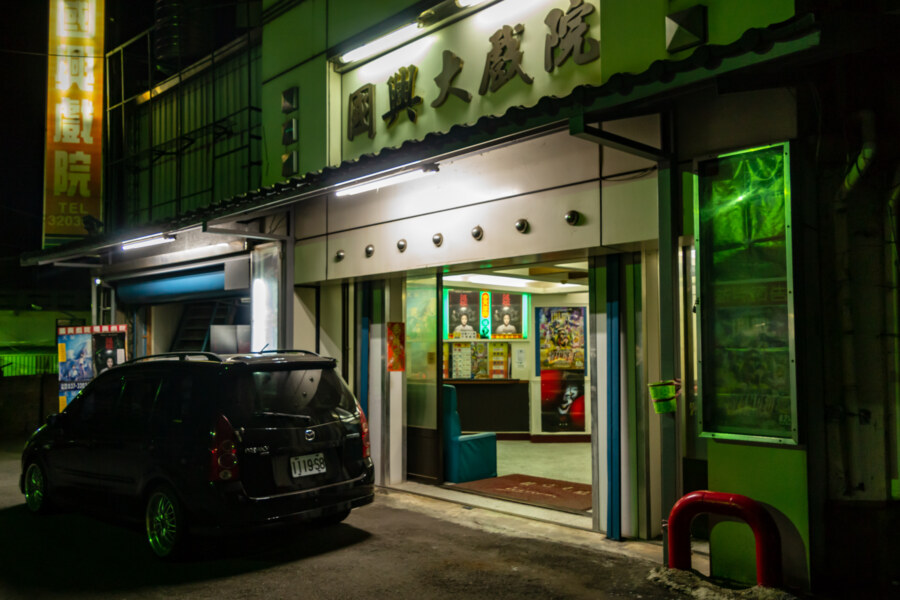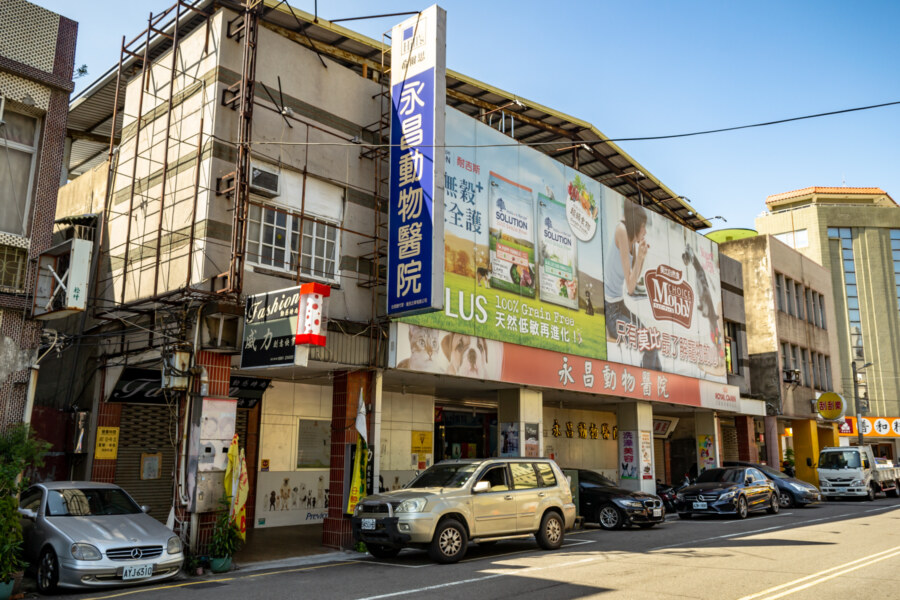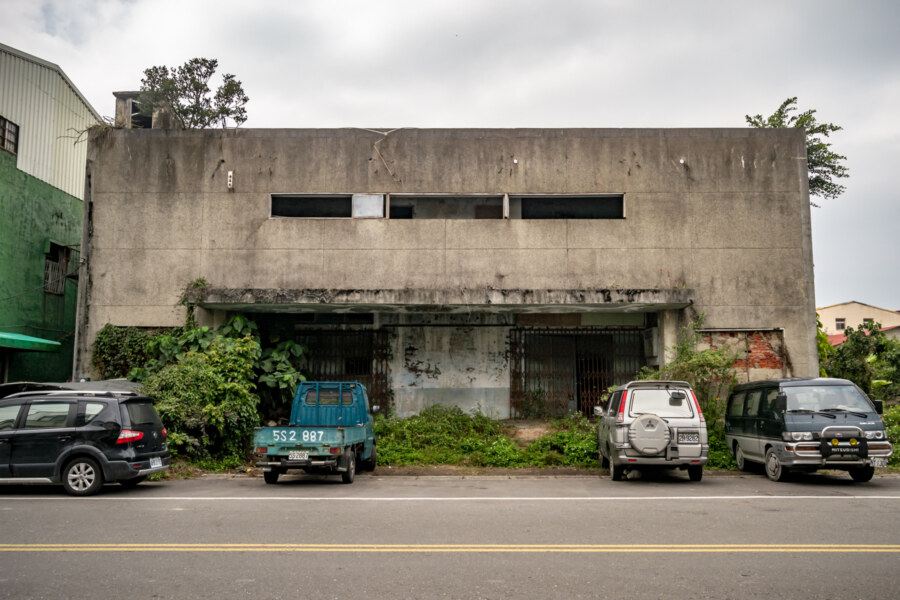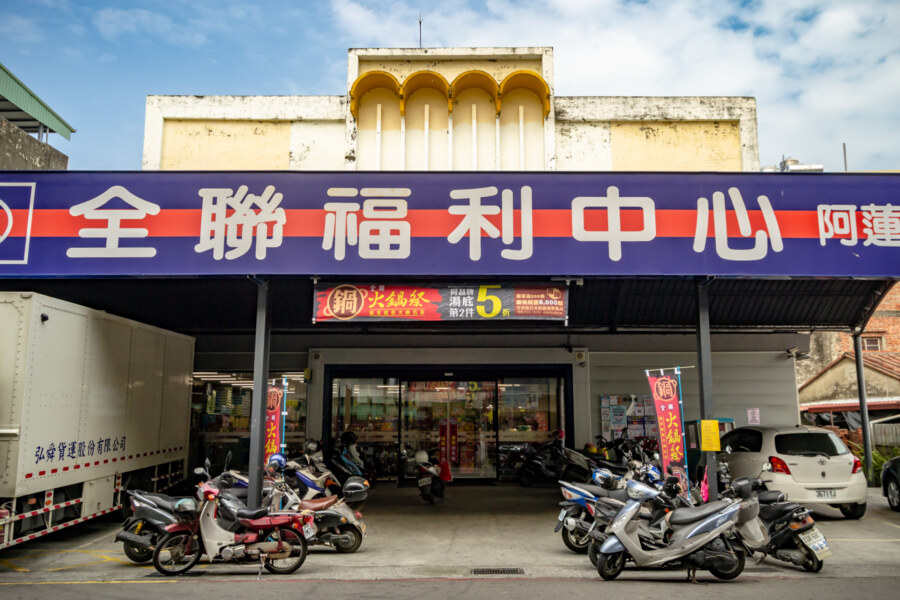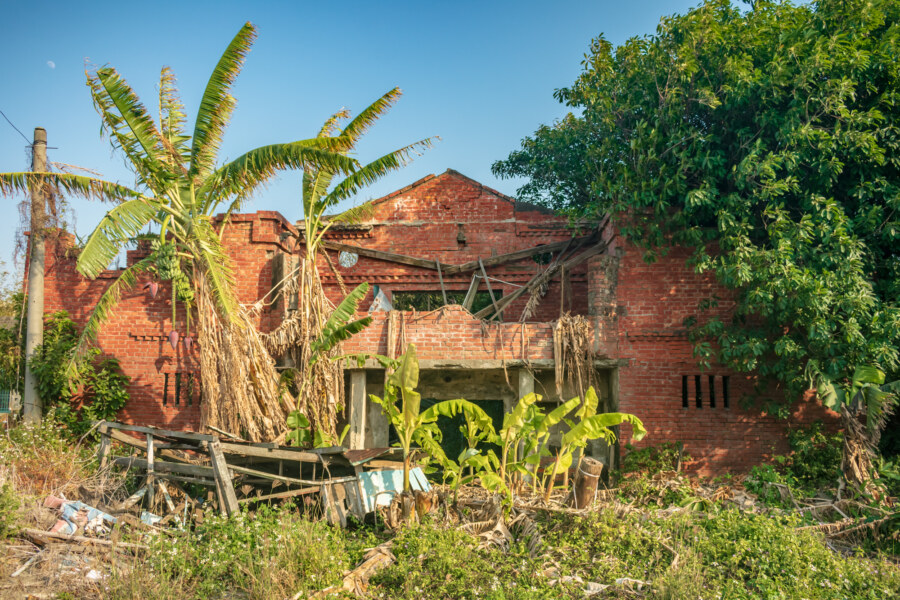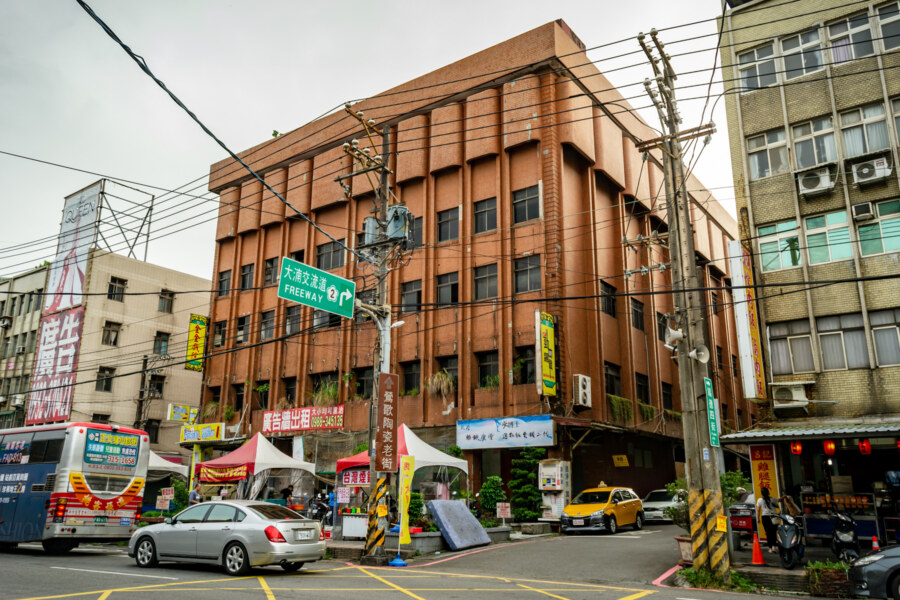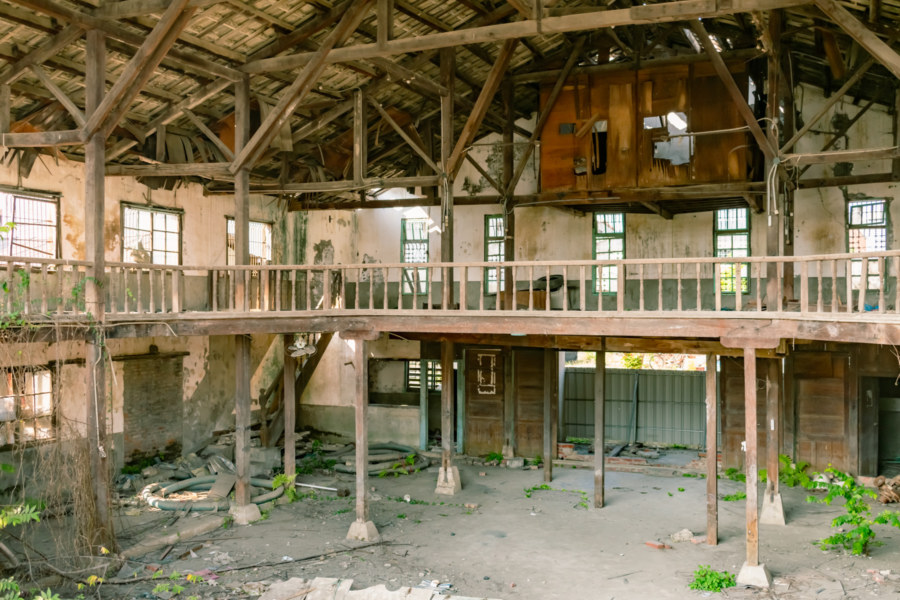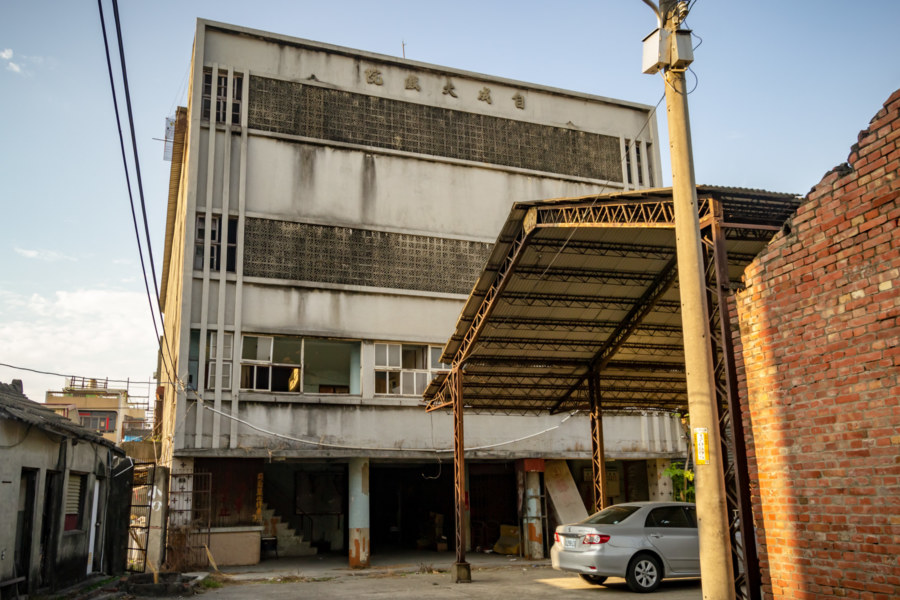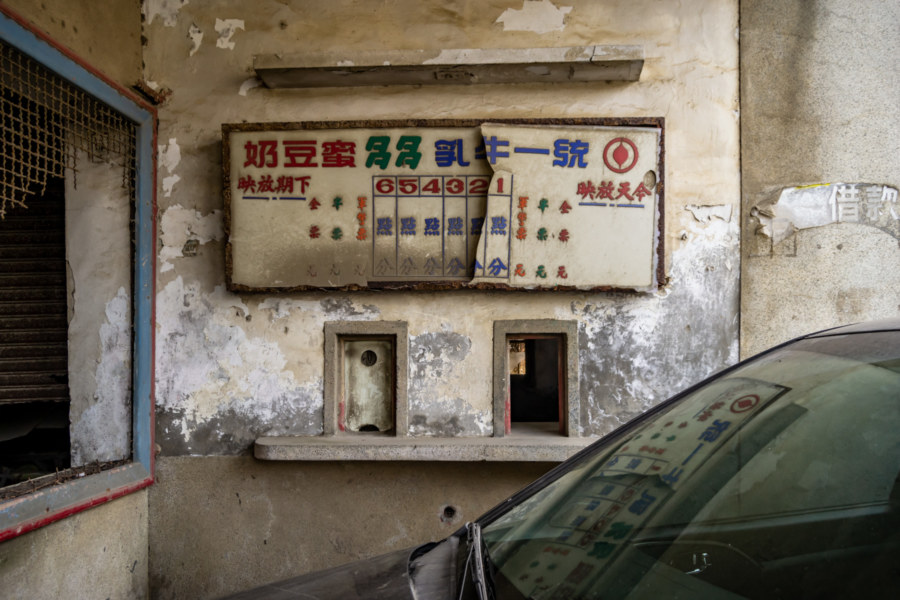Guóxìng Theater (國興戲院) was the very last standalone movie theater operating in Miaoli, Taiwan. After 70 years in the cinema business it closed for renovations in the final days of 2019, never to reopen. Apparently the intention was to return sometime after the Lunar New Year break in early 2020, but then the pandemic struck. Three years later it is probably safe to assume it’ll never show another film, marking an end to an era of independent cinema in Miaoli.
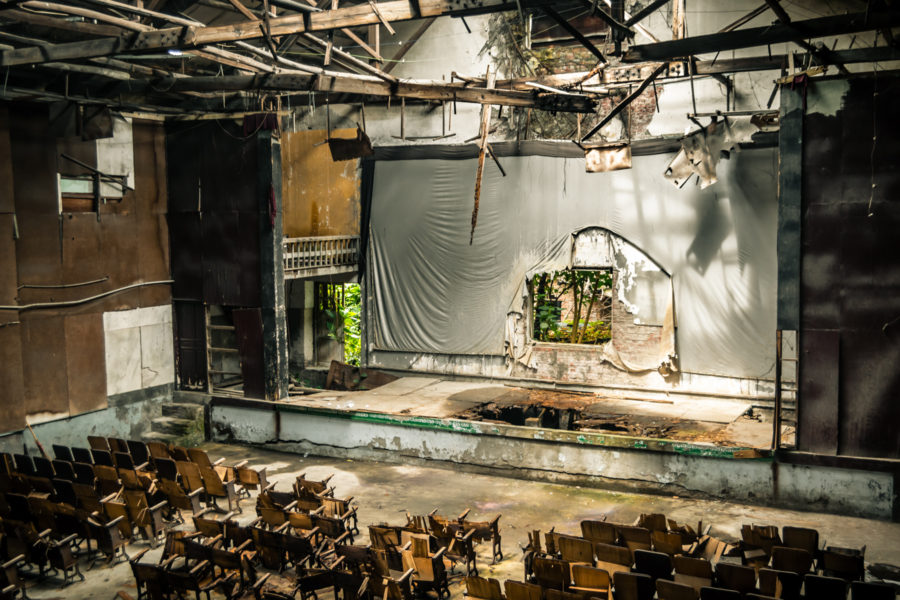
This ongoing project documents the many physical remnants and traces of the movie theater industry in Taiwan. The Taiwanese cinema industry blossomed in the late Japanese colonial era, exploded during the booming years of the Taiwan Economic Miracle, and went into sharp decline in the 1980s due to rising wages, the popularization of home video, and the development of modern cineplexes. Hundreds of traditional standalone theaters went out of business in recent decades, littering the urban landscapes of Taiwan with their derelict husks. Some effort has been undertaken to revive specific theaters but only a handful remain in operation. Delve into these archives to read more about theaters past and present, whether dilapidated and fallen into ruin or still clinging to life.
Miaoli Theater 苗栗戲院
The former Miaoli Theater (苗栗戲院) is located in the heart of Miaoli City, a mid-sized settlement of 86,000 residents in north-central Taiwan. Approximately 30 theaters were once found scattered around Miaoli County—with at least 5 located here in the city, but as of 2023 only two of those remain standing (with Guoxing Theater being the other one). Few authoritative sources exist to substantiate the early history of Miaoli Theater, but evidence indicates it was operating in the 1950s, and movies were shown all the way into the early 2000s—an unusually long run for a standalone theater from this era. It was eventually sold, shut down, and converted into the Yǒngchāng Animal Hospital (永昌動物醫院), a pet supplies store and veterinarian clinic.
Nanxi Huazhou Theater 楠西華洲戲院
Huázhōu Theater (華洲戲院) is a long-abandoned cinema located in Nanxi, a rural district nestled in the low hills of eastern Tainan, Taiwan. Easily reached via Provincial Highway 3, the main settlement in Nanxi is situated along the middle reaches of Tsengwen River, the fourth longest in the country. Nanxi, like most other parts of rural Taiwan, has suffered an almost continuous population outflow for decades, with household registration numbers almost halving from around 14,000 in 1981 to merely 8,000 in 2023. With so many people departing in search of opportunity in bigger cities we are left to wonder, what inspired the construction of such a large theater in this downtrodden town?
Alian Theater 阿蓮戲院
Alian (阿蓮) is a rural township at the northern extent of coastal Kaohsiung, right on the border with Tainan, in southern Taiwan. Although it isn’t a very busy place nowadays, it was once home to two movie theaters, only one of which remains in any form. This is the eponymous Alian Theater (阿蓮戲院), in business since the 1960s, and now a branch of PX Mart (全聯福利中心), the largest supermarket chain in the country.
Kouhu Theater 口湖戲院
The overgrown ruins of Kǒuhú Theater (口湖戲院) can be found along a dusty country road on the outskirts of Kouhu, a desolate town in coastal Yunlin, at the westernmost extent of the Taiwanese mainland. Its most distinct feature is the exposed red brick facade, which might be unique among those vintage theaters still standing in earthquake-prone Taiwan. Not much is written about this old theater online, possibly due to its obscure location in the remote countryside, but it dates back to the early 1950s and likely remained in operation into the early 1980s.
Jinjin Theater 金金大戲院
The former Jīnjīn Theater (金金大戲院) is located midway along a major thoroughfare connecting Yingge with Taoyuan City in northern Taiwan. Technically it is still within New Taipei as the ragged border with Taoyuan swings around the theater, less than 100 meters away at some points. This second-run cinema opened to the public in 1985, screening a diverse assortment of films for as many as 900 guests in this highly industrialized suburb. It went out of business sometime around 2005 and has been mostly left to the elements since then, although food vendors still ply their trade along the sidewalk in front of the theater entrance, and some attempt has been made to sell commercial advertising space on the facade.
Ruimao Theater 瑞茂戲院
Ruìmào Theater (瑞茂戲院) is an old wooden theater hidden in the winding laneways of Guògōu (過溝), a small fishing and farming village in remote coastal Chiayi, Taiwan. Nobody seems to know exactly when this theater was established, although there is general agreement it likely dates back to the early post-war era. Remarkably, it was one of two theaters in this settlement, and one of maybe a dozen along this stretch of coast in the 1970s, when salt production and oyster farming buoyed the local economy. As with most other theaters of its vintage, this one closed sometime in the 1980s.
Zicheng Theater 自成大戲院
Zìchéng Theater (自成大戲院) is a derelict cinema located in Baozhong, a rural township on the coastal plains of Yunlin, Taiwan. After opening in 1966 this theater drew enormous crowds from the surrounding districts, particularly in its early years of operation, when it was customary for movie stars to appear on stage to promote new films. Business began to decline with the closure of the nearby sugar factory and the widespread adoption of home television in the late 1970s, ultimately leading to the final screening sometime around 1985. Since then the theater has remained idle, slowly decaying with the passage of years, its fading fortunes mirroring those of the surrounding settlement.
Huadong Valley Ride 2018: Taitung City
This entry documents my final day of riding on a bicycle trip down the Huadong Valley in 2018. I began with a short yet eventful spin around Taitung City, the administrative capital of Taitung, and headed southwest across the alluvial plains before curving back to catch a train bound for Taipei in the afternoon. I already introduced the history, geography, and culture of Taitung City in this post from a previous visit in 2015, so I’ll focus on specific sites I visited on this particular trip.
Mailiao Jincheng Theater 麥寮金城戲院
Jīnchéng Theater 金城戲院 is located in Mailiao, a rural township in northwestern Yunlin, Taiwan. This theater is something of a cypher; it was reputedly built in 1965, but may have only opened in 1968, and business records record only one transaction in 1975. It probably closed in the late 1980s or very early 1990s, a casualty of changing consumer habits and population outflow to larger urban centers. Beyond that, not much is known about this hulking monster of a theater, which may have accommodated something like 800 patrons at its peak.
